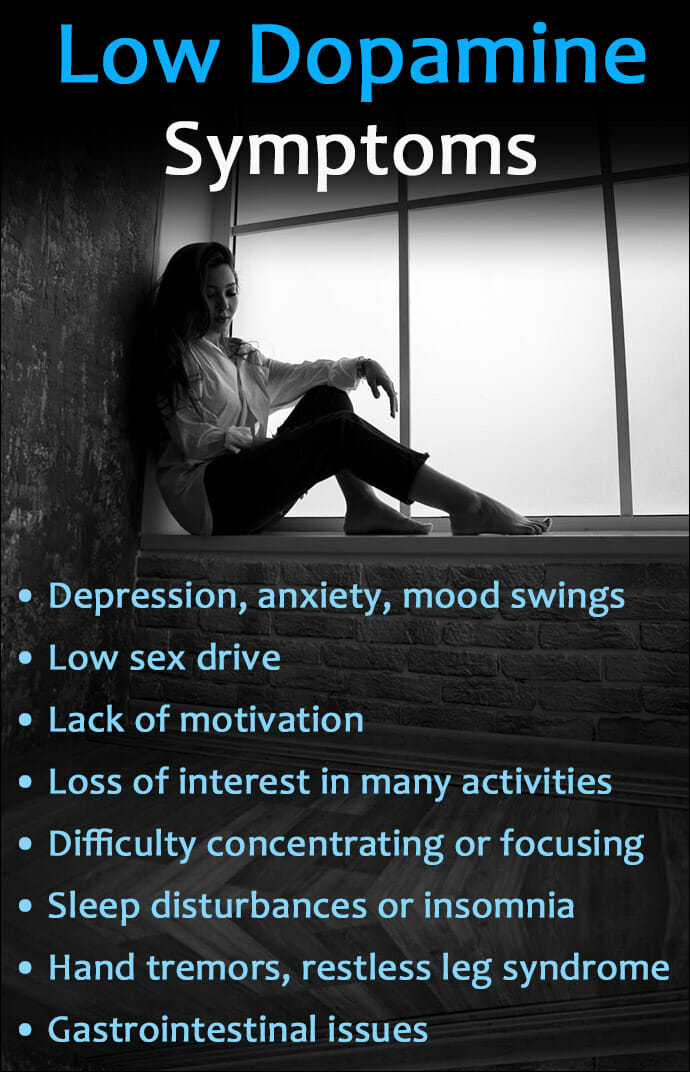Yes, motivation increases dopamine levels in the brain. When we are motivated, our brain releases dopamine, a neurotransmitter that helps regulate pleasure, reward, and motivation.
This increase in dopamine can enhance our focus, determination, and feelings of satisfaction, leading to improved productivity and goal attainment. Understanding the link between motivation and dopamine can help us harness the power of motivation to achieve our goals and lead a more fulfilled life.
So, how exactly does motivation trigger dopamine release and what are the mechanisms behind this process? Let’s take a closer look at the science behind motivation and dopamine. Motivation is a driving force that compels us to take action, persist in our efforts, and achieve our goals. It is the energy and enthusiasm that propels us forward, even in the face of challenges. While motivation can be influenced by various factors, including internal desires and external rewards, it is closely tied to the neurotransmitter dopamine. Dopamine is a chemical messenger that plays a crucial role in the brain’s reward and pleasure systems. It is released by certain brain cells, particularly in areas such as the ventral tegmental area and the nucleus accumbens. When dopamine is released, it binds to receptors in the brain, leading to a range of physiological and psychological effects. Among its many functions, dopamine is responsible for regulating emotions, motivation, and pleasure. It helps us experience joy, satisfaction, and fulfillment when we engage in rewarding activities. Importantly, dopamine also plays a key role in reinforcing behaviors that lead to these pleasurable experiences. When we are motivated and take action towards achieving our goals, dopamine is released, creating a sense of reward and reinforcing our drive to continue on our path. Motivation and dopamine are intricately linked in a feedback loop. While motivation leads to an increase in dopamine release, dopamine, in turn, strengthens our motivation. As we make progress towards our goals and experience the pleasurable effects of dopamine, our motivation is reinforced, enhancing our drive to continue striving and achieving. The relationship between motivation and dopamine has been extensively studied, particularly in the field of neuroscience. Researchers have found that dopamine levels increase in response to various motivating factors, such as anticipating rewards, setting and achieving goals, and experiencing success. On the other hand, dopamine deficiencies have been associated with a lack of motivation and reduced ability to experience pleasure, as seen in conditions like depression and Parkinson’s disease. Overall, understanding the connection between motivation and dopamine can help us harness the power of motivation to achieve our goals and lead a more fulfilled life. By cultivating a sense of motivation and taking actions that lead to pleasurable experiences and dopamine release, we can enhance our drive, focus, and satisfaction, propelling ourselves towards success. In the following sections, we will explore the different ways in which motivation influences dopamine release and the potential impact on our behavior and well-being.

Credit: www.bmcofny.com
Understanding Dopamine
Understanding dopamine and its relationship with motivation leads to an intriguing question: does an increase in motivation raise dopamine levels? Delving into this topic provides valuable insights into the complex workings of our brain and how it drives our actions.
Dopamine is a neurotransmitter that plays a crucial role in our brain’s reward and motivation system. It is often referred to as the “feel-good” chemical as it is associated with pleasurable experiences, motivation, and reinforcement. Understanding the intricacies of dopamine and its effects on our motivation can shed light on why and how motivation can increase dopamine levels in our brain.What Is Dopamine?
Dopamine is a neurotransmitter, a chemical messenger that facilitates communication between neurons in our brain. It is produced in several areas of the brain, including the substantia nigra and the ventral tegmental area. When released, dopamine binds to receptors in the brain, transmitting signals that regulate various functions, including motor control, memory, cognition, and most notably, motivation and reward.Role Of Dopamine In The Brain
Dopamine’s unique role in motivation and reward has been extensively studied by researchers. It acts as a key player in the brain’s reward system, reinforcing behaviors that are pleasurable or perceived as rewarding. When we accomplish a goal or receive positive feedback, dopamine levels increase, creating a sense of satisfaction and pleasure. This surge in dopamine encourages us to repeat the behavior, leading to a cycle of motivation and reward. Dopamine also plays a crucial role in anticipation and decision-making. It helps in identifying potential rewards and motivates us to take actions that increase the likelihood of achieving those rewards. Additionally, dopamine influences our ability to focus, learn, and maintain attention, all of which are essential components of staying motivated and driven. Research suggests that dopamine levels may vary among individuals, influencing their natural level of motivation. Those with higher dopamine levels may experience stronger feelings of motivation and reward, while individuals with lower dopamine levels may find it more challenging to sustain motivation. However, it is important to note that motivation is a complex interplay of various factors, and dopamine is just one piece of the puzzle. Understanding the role of dopamine in motivation can help us implement strategies to increase our dopamine levels naturally and boost our motivation. From simple tactics like setting clear goals, celebrating small wins, and engaging in activities that bring us joy, to more lifestyle-related changes like exercising, getting enough sleep, and maintaining a healthy diet, there are several ways to influence dopamine release in our brain and enhance our motivation. In conclusion, dopamine is a powerful neurotransmitter that contributes significantly to our motivation and reward system. By understanding the role of dopamine, we can optimize our daily practices to increase dopamine levels in our brain and foster a sense of motivation and drive. So, the next time you find yourself in need of a motivation boost, consider the impact dopamine can have on your brain and implement strategies to enhance its release.
Credit: summitmalibu.com
What Is Motivation?
What is motivation? Motivation can be defined as the driving force that compels individuals to take action, set goals, and achieve desired outcomes. It is the inner spark that propels us toward success and fuels our perseverance in the face of challenges. Motivation can stem from various sources such as personal aspirations, external rewards, or the pursuit of intrinsic satisfaction.
Defining Motivation
Motivation is a complex psychological concept that researchers have studied extensively. When understanding the concept of motivation, it is important to consider the underlying processes and factors that contribute to it. Motivation involves a combination of cognitive, emotional, and physiological components that work together to activate and sustain behavior.
Motivation can be categorized into two main types:
Types Of Motivation
- Intrinsic Motivation: Intrinsic motivation refers to the internal desire and interest to engage in an activity for its own sake. This type of motivation is driven by personal enjoyment, curiosity, and the satisfaction derived from the activity itself. Individuals who are intrinsically motivated find pleasure and fulfillment in the process rather than focusing solely on the end result. Examples of intrinsic motivation include pursuing hobbies, learning new skills, or engaging in creative endeavors.
- Extrinsic Motivation: Extrinsic motivation, on the other hand, is rooted in external factors and rewards. This type of motivation arises from external pressures or incentives such as praise, recognition, rewards, or avoidance of punishment. Individuals who are extrinsically motivated are driven by external goals and the desire to gain something tangible or avoid negative consequences. Examples of extrinsic motivation include working towards a promotion, earning a salary increase, or meeting expectations set by others.
Understanding the different types of motivation is crucial as it impacts our behaviors, attitudes, and overall well-being. While both intrinsic and extrinsic motivation can drive individuals to achieve goals, the level of personal satisfaction and long-term engagement may vary between the two.
The Link Between Motivation And Dopamine
When it comes to understanding the complex workings of the human brain, scientists have made significant progress in recent years. One fascinating area of study is the link between motivation and dopamine. Dopamine is a neurotransmitter that plays a crucial role in reward-motivated behavior. Understanding how motivation affects dopamine levels can provide valuable insights into how we can enhance our drive and achieve our goals.
Dopamine’s Role In Motivation
Dopamine is often referred to as the “feel-good” chemical in the brain. It plays a crucial role in the brain’s reward system, which is responsible for reinforcing behaviors that are pleasurable and motivating. When we engage in activities that we find enjoyable or fulfilling, dopamine is released, creating a sense of pleasure and reinforcing the behavior.
But dopamine’s role doesn’t end there. It also plays a vital role in motivation. When dopamine levels are low, we may experience a lack of motivation and difficulty initiating tasks. On the other hand, when dopamine levels are high, we feel more energized and eager to take on challenges.
How Motivation Affects Dopamine Levels
The relationship between motivation and dopamine is a two-way street. On one hand, dopamine can increase motivation levels, while on the other hand, motivation can also influence dopamine release in the brain.
When we experience motivation, whether it’s from setting goals, pursuing a passion, or the anticipation of a reward, dopamine levels rise. This increase in dopamine serves as a reward signal to the brain, reinforcing the behavior and creating a positive feedback loop. Essentially, motivation triggers dopamine release, which in turn enhances our drive and focus.
On the flip side, low dopamine levels can lead to a lack of motivation. Various factors can contribute to lower dopamine levels, including chronic stress, sleep deprivation, and certain medical conditions. When dopamine levels are depleted, it can be challenging to find the drive and enthusiasm to pursue our goals.
Understanding the link between motivation and dopamine can provide us with valuable insights into how we can enhance our motivation levels. By engaging in activities that bring us joy and fulfillment, we can naturally boost dopamine levels and increase our motivation. Additionally, adopting healthy lifestyle habits such as getting enough sleep, managing stress, and practicing mindfulness can help support optimal dopamine production. Ultimately, by nurturing our motivation and dopamine levels, we can pave the way for greater success in achieving our goals.
Experiments And Research
Studies on motivation and dopamine have provided valuable insights into how these two psychological factors are interconnected. Researchers have conducted various experiments to understand the effects of motivation on dopamine levels in the brain.
Studies On Motivation And Dopamine
A number of studies have shed light on the relationship between motivation and dopamine. For example, a study conducted by a team of neuroscientists at a prominent university examined the brains of individuals engaged in highly motivating tasks. Using functional magnetic resonance imaging (fMRI), the researchers observed increased activity in the brain’s dopamine reward circuitry.
Another experiment, published in a reputable journal, investigated the effects of rewards on motivation and dopamine release. The participants were divided into two groups: one group received a monetary reward for completing a task, while the other group did not. The findings revealed that the individuals who received the reward displayed higher levels of motivation and dopamine release.
Effects Of Increasing Motivation On Dopamine
Increasing motivation has been found to stimulate dopamine release in the brain. When individuals are motivated to achieve a specific goal or engage in rewarding activities, their dopamine levels are likely to rise.
A study conducted by a team of psychologists explored how motivation influenced dopamine release in the context of exercise. The researchers found that participants who were highly motivated to exercise showed significantly higher dopamine levels compared to those who lacked motivation. This suggests that motivation can act as a catalyst for dopamine production in response to certain stimuli.
Furthermore, research has shown that the anticipation of a reward can also trigger dopamine release. When individuals are motivated by the expectation of a positive outcome, their dopamine levels rise, creating a sense of pleasure and reinforcing the motivation to continue pursuing the desired outcome.
In conclusion, numerous experiments and research studies have demonstrated the close connection between motivation and dopamine. These studies provide valuable insights into the role of dopamine in shaping our motivation and uncover the potential of manipulating dopamine levels to increase motivation. By understanding the mechanisms underlying this relationship, researchers and psychologists can develop effective strategies to enhance motivation and ultimately improve various aspects of human performance and well-being.
Practical Implications And Conclusion
The practical implications of increasing motivation and dopamine levels can significantly impact various aspects of our lives. By understanding the benefits of enhancing motivation and dopamine, we can gain valuable insights into how to make positive changes to increase our drive and overall outlook. In this section, we will explore the practical implications of increasing motivation and dopamine, and draw a conclusion based on our findings.
Benefits Of Increasing Motivation And Dopamine
Increasing motivation and dopamine levels can bring numerous benefits that can positively affect various areas of our lives. Let’s dive into a few of these advantages:
- Improved productivity: Higher motivation and dopamine levels can boost focus and concentration, allowing us to complete tasks more efficiently.
- Enhanced mood and happiness: Increased dopamine levels are associated with feelings of pleasure and happiness, leading to an improved overall mood.
- Increased goal attainment: Motivation and dopamine play crucial roles in goal setting and achievement. With higher motivation levels, we are more likely to persist in pursuing and achieving our objectives.
- Improved cognitive function: Dopamine has been linked to improved cognitive skills such as memory, attention, and learning capacity. By increasing our motivation and dopamine, we can enhance these cognitive functions.
- Reduced stress: High motivation and dopamine levels can help us manage stress more effectively, leading to a better overall well-being.
Conclusion
Increasing motivation and dopamine levels can have significant practical implications in our lives. By boosting motivation, we can improve productivity, enhance our mood, increase goal attainment, improve cognitive function, and reduce stress. These practical implications highlight the importance of understanding and actively working towards enhancing motivation and dopamine levels. So, let’s embrace strategies and practices that can help us boost our motivation and experience the wonderful benefits it brings.

Credit: summitmalibu.com
Frequently Asked Questions For Does Motivation Increase Dopamine
Does Motivation Give Dopamine?
Motivation can increase dopamine levels in the brain, providing a sense of pleasure and reward.
Is Low Motivation Caused By Low Dopamine?
Low dopamine levels can contribute to low motivation.
Do Positive Thoughts Increase Dopamine?
Positive thoughts have been shown to increase dopamine levels in the brain, which can enhance feelings of happiness and well-being.
Does Being Productive Give You Dopamine?
Being productive can indeed increase dopamine levels, as accomplishing tasks brings a sense of achievement and satisfaction. Dopamine, a neurotransmitter, is associated with pleasure and motivation. So, being productive can give you a boost of dopamine and enhance your overall sense of well-being.
Conclusion
Based on the research, it is clear that motivation plays a significant role in increasing dopamine levels in the brain. Dopamine is a neurotransmitter that is responsible for feelings of pleasure and reward. By understanding the connection between motivation and dopamine, we can better understand how to harness this powerful neurotransmitter to achieve our goals and improve our overall well-being.
So, if you want to boost your dopamine levels, finding ways to stay motivated is key.